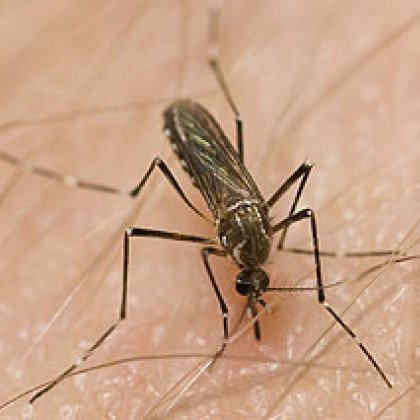
A mosquito-borne virus that each year harms up to 100 million people and kills more than 20,000 is a step closer to being controlled after a breakthrough by Queensland scientists.
In a paper published in the prestigious international journal Science on January 2, researchers from The University of Queensland have proven the effectiveness of a new way of limiting the lifespan of the type of mosquito that spreads dengue fever.
They have done it by infecting the dengue mosquito, Aedes aegypti, with a bacterium that is harmless to humans and other animals but halves Aedes’ lifespan. This has the potential to greatly reduce dengue because only old mosquitoes are effective at transmitting the virus to humans.
The scientists’ success is critical to the progress of a $10 million project funded by the Bill and Melinda Gates Foundation and may lead to a new, safe and cheap way of curtailing dengue fever.
Carried out in the laboratory of Professor Scott O’Neill, Head of UQ’s School of Biological Sciences, the experiment’s focus was painstaking work with the Aedes mosquito and Wolbachia, a bacterium that occurs naturally in fruit flies.
PhD student Conor McMeniman used super-fine needles to manually inject 10,000 mosquito embryos with Wolbachia, and encouraged the surviving mosquitoes to feed on his own blood.
“We ended up having to inject thousands of embryos to achieve success, but it was well and truly worth it in the end,” Mr McMeniman said.
The hypothesis the researchers set out to prove was that the bacterium would:
- reduce the lifespan of mosquitoes, which must be approximately 12-15 days old before they can transmit the dengue virus;
- be passed by females to their offspring and spread into mosquito populations;
- not kill mosquitoes before they were old enough to breed and produce more bacterium-carrying insects.
The researchers have shown that Wolbachia halves mosquitoes’ lifespan, which can be up to 30 days in the field. This dramatically curtailed their potential to spread dengue fever, without preventing the hereditary transmission of the bacterium.
Professor O’Neill said the project’s next stage would be a contained field cage setting in northern Queensland.
“If that proves successful we hope to deploy this new dengue control measure in other parts of Australia, as well as Thailand and Vietnam,” Professor O’Neill said.
There is no vaccine or cure for dengue fever, which is a painful and debilitating disease also known as ‘breakbone fever’. Dengue haemorrhagic fever can be lethal.
The virus is of greatest concern in tropical parts of the developing world but - despite significant investments in insecticides and public awareness campaigns - outbreaks are not uncommon in northern Queensland. In northern Queensland, well over 60 cases have been confirmed in Cairns since late November 2008, and confirmed cases have begun emerging in Townsville in January 2009.
Globally, outbreaks of dengue are becoming more common, and there are concerns that climate change will place more people at risk.
Web sites: www.mosquitoage.org
Media: Fiona Kennedy (0413 380 012).
.jpg)



